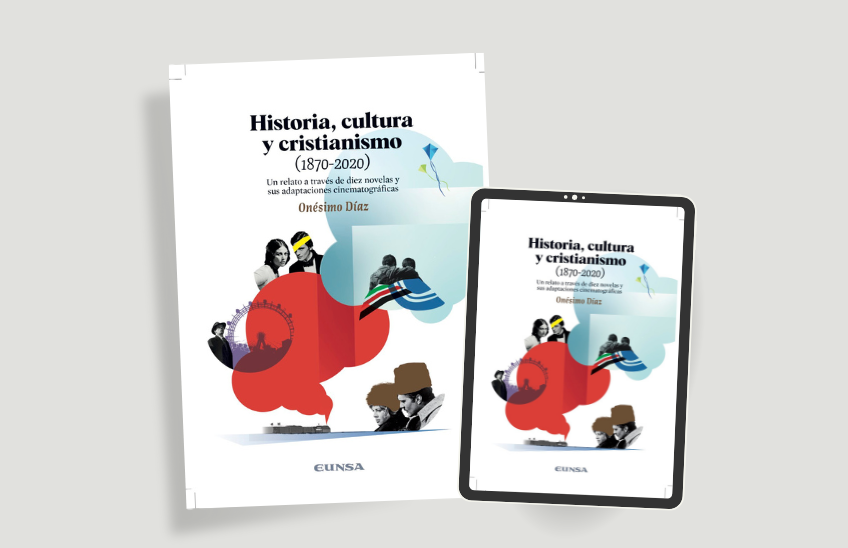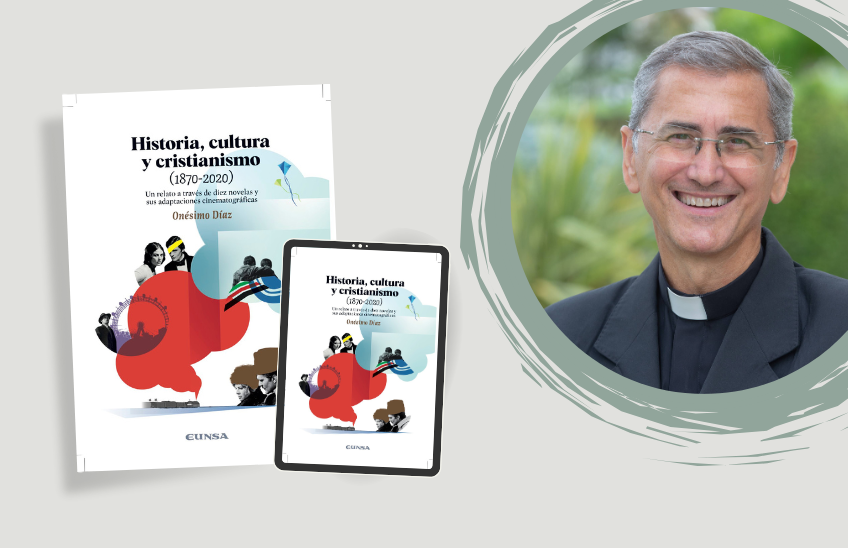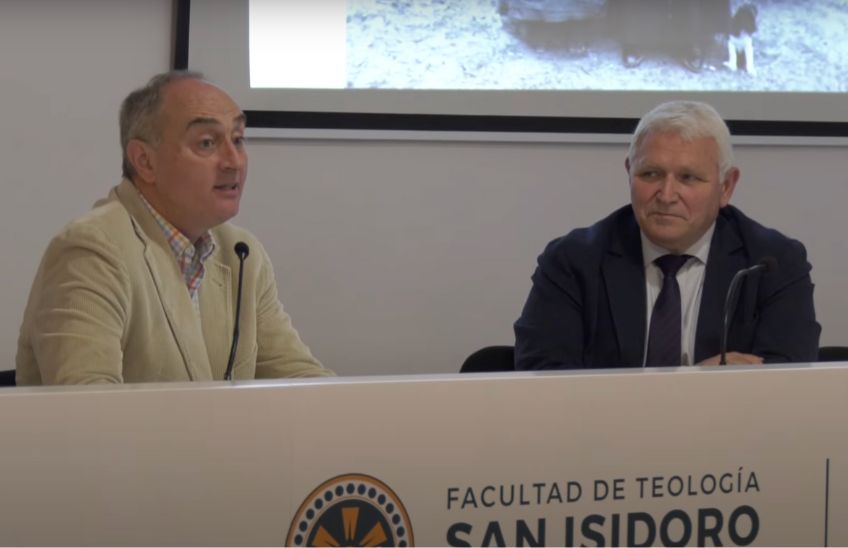Onésimo Díaz: "Literature and cinema are means to approach history".
The historian and priest Onésimo Díaz publishes a new book, in which he analyzes the main events of the last 150 years through literature and cinema.

12 | 06 | 2024
programs of study Onésimo Díaz, Deputy Director of the Josemaría Escrivá Center (CEJE), has just published Historia, cultura y cristianismo (1870-2020). Un relato a través de diez novelas y sus adaptaciones cinematográficas (EUNSA). Its ten chapters analyze and synthesize the most relevant events of recent history in an original and entertaining way: the turn of the century, the two world wars, the Cold War, decolonization, the construction and fall of the Berlin Wall, 9/11 and the threat of global terrorism.
The book stems from the subject "History, Culture and Christianity in the 20th Century," taught by the author. The ten selected novels and film adaptations, including The Leopard, Doctor Zhivago, The Cardinal, Return to Brideshead, The Grapes of Wrath, The Remains of the Day, The Twenty-fifth Hour, The Third Man, Live! and Kites in the Sky, offer an outstanding perspective on history and its relationship to culture and Christianity.
How do you think literature and film can help readers understand the complexity of recent history?
Literature and film are powerful tools to bring us closer to history. Beyond reflecting the creativity of their authors, these products also capture the essence of their time. In fact, quotes from movies and novels can transport us with great accuracy to moments core topic from the past. That is why I turn to these sources: literature and film are means to bring us closer to history and to understand its complexity.
What inspired you to approach recent history through literature and film rather than more traditional approaches? Was there a particular event or experience that influenced this decision?
My interest in combining history with literature and film goes back to my student days. I remember a professor who was passionate about film talking to us about the history of cinema and how it related to history in general. I was fascinated by the idea of linking history with cinema, and later, with literature. In Spain, France and other countries, there are historians who have explored this connection, and at staff I find it very interesting.
I have collected in my book ten great novels that have inspired movies. Each illustrates a different historical context. It was a challenge to make that selection, and to have it reflect the last 150 years of history in an accurate and engaging way.
How did you choose the ten novels and their film adaptations to represent the different historical moments?
The idea for the book came when I taught a subject at the University of Navarra entitled "History, Culture and Christianity in the 20th Century". I wanted to make the subject attractive to the students, so it occurred to me to choose good quality novels that had been adapted to film. It was a gradual process, but eventually I found the ten novels and films that became the backbone of the book. I also included other novels, films and quotes that enrich the panorama of recent history. I believe there are many more great films and novels worth reading and watching.
In the introduction of the book you mention that knowing the past is essential to understand current events. Could you give a concrete example of how an event financial aid to interpret a contemporary event?
Two examples that come to mind are Doctor Zhivago and Comets in the Sky. Both books reflect not only the past but also some facts and events that we are living through.
Boris Pasternak's novel Doctor Zhivago and its film adaptation help us illustrate the Bolshevik Revolution, World War I, the Russian Civil War and the origin of communism in Russia. This historical perspective is especially relevant today, as it allows us to better understand the complex status in Ukraine, which goes beyond what is presented in the media. By understanding the historical context of the region, we can appreciate the complexity of Ukraine's history of independence and gain a more complete picture of today's status .
Similarly, Afghan-American writer Khaled Hosseini's book, Kites in the Sky, illustrates the seizure of power in Afghanistan by Islamic dictators and the imposition of Islamic law. This work gives us a clearer understanding of the roots of the global terrorism we face today, and allows us to better understand the complexities of the region.
What suggestions do you have for those who wish to delve deeper into history and its relationship to Christianity? Do you recommend any particular literary works or films to start with?
Christianity is a fundamental topic in my book, as it has been a major source of Western culture in Europe and other continents. For those who wish to delve deeper into the history of Christianity, I recommend two books by Michael Burleigh: Earthly Power and Sacred Causes. These books offer a detailed look at the Church in the 19th and 20th centuries, and how it has survived persecution and martyrdom.
In addition, I recommend the movie The Cardinal, which is an adaptation of the novel of the same name. This movie is an excellent way to understand the Church in recent years and how it has evolved over time.
In general, I think it is important to explore the influence of Christianity in history, culture, art and literature. There are many fascinating stories that are not often told, and I hope my book will move readers to dig deeper.
How do you think Christianity can influence the way we interpret the world and history?
Christianity has been a major force in world history for two thousand years, and although its influence has waned in Europe in the last 150 years, it remains a significant presence in other continents and cultures.
In my opinion, Christianity can influence our understanding of the world and history in a positive way. Although history is full of suffering and conflict, there are also moments of beauty and hope. By offering a more positive and hopeful outlook for the future, Christianity can inspire people to work toward a better future. History is the record of the past, but the future is yet to be written, and Christians can help create a more positive and hopeful history. In addition, film and literature can be powerful tools for learning and reflecting on faith and spirituality.
_____________________________
Learn more about the book:
"History, culture and Christianity", a book that explores recent history.



